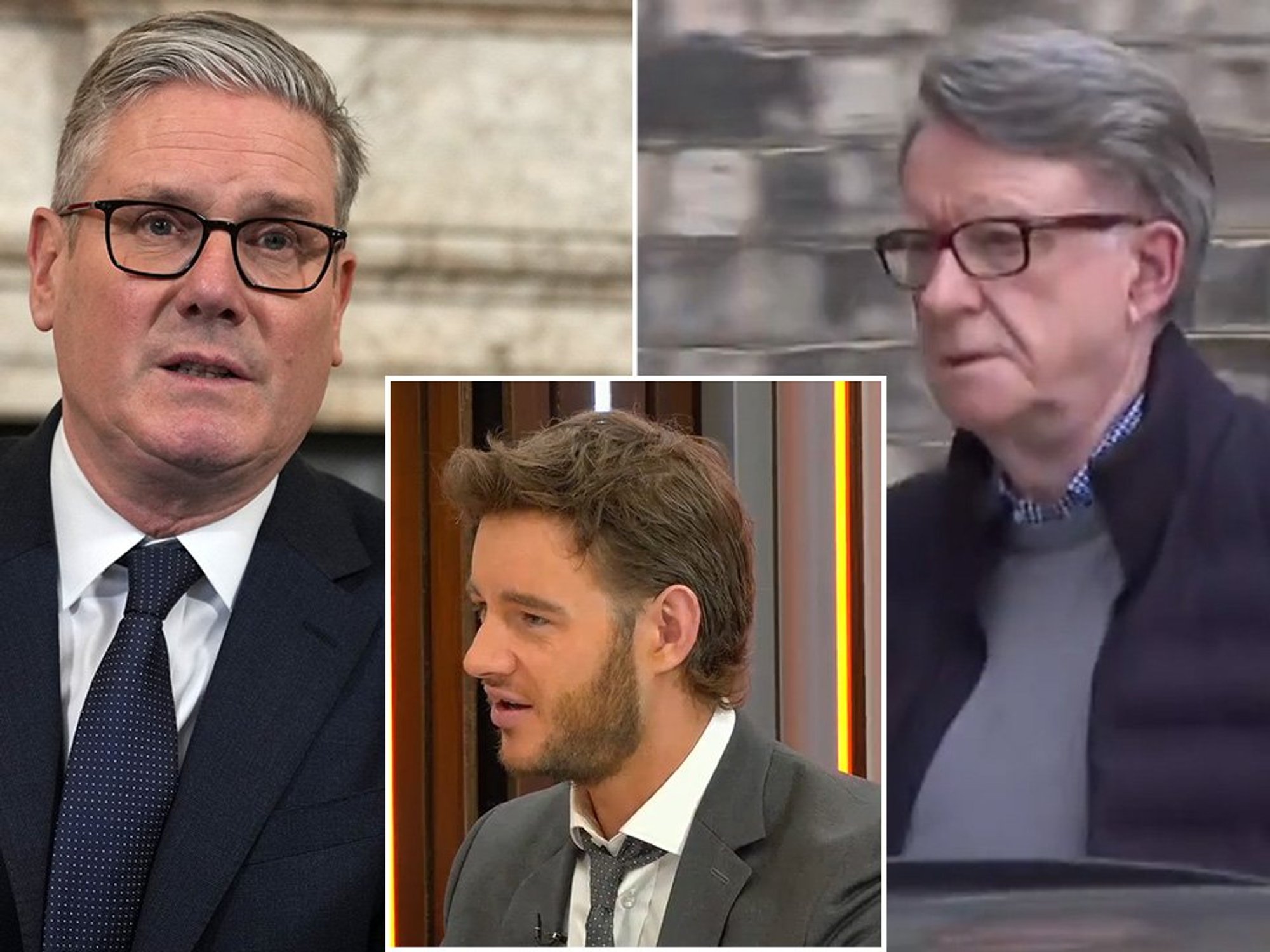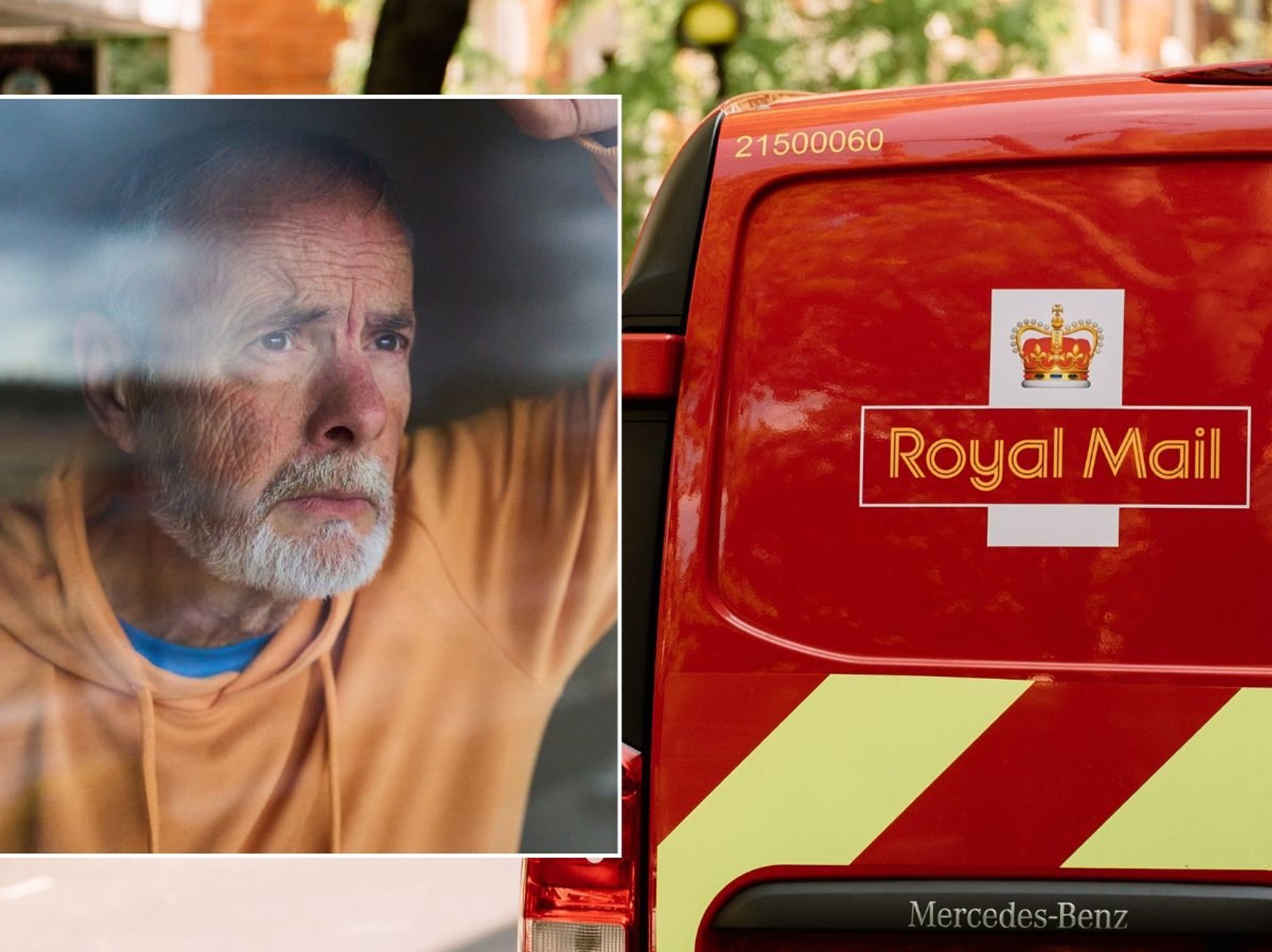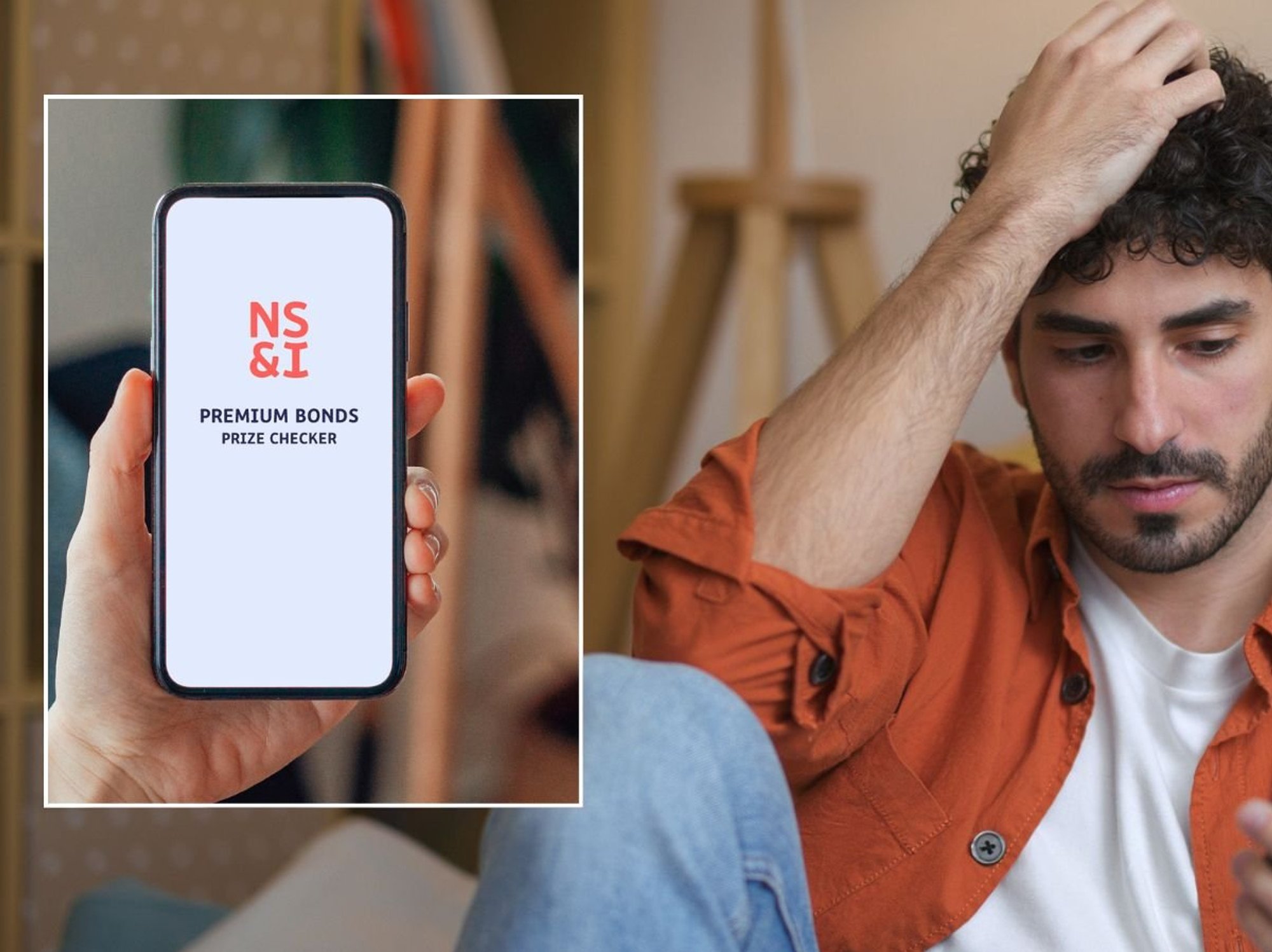Tom Harwood dumbfounded as GB News guest says ‘tax the POOR’ to tackle inequality
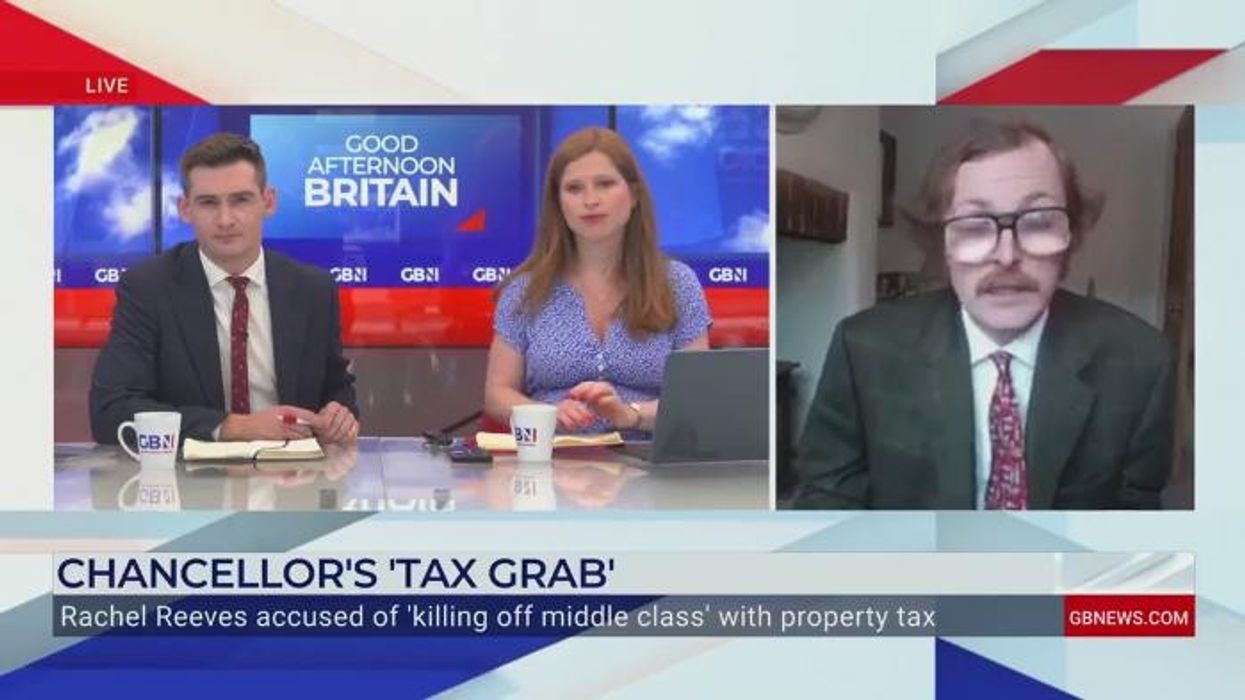
Tom Harwood dumbfounded as GB News guest says ‘tax the POOR’ to tackle inequality |
GB NEWS

Writer Charles Amos joined Tom and his co-host Emily Carver on the People’s Channel to discuss property tax proposals
Don't Miss
Most Read
Watch the moment GB News’s Tom Harwood was left astonished by a guest’s call for the poor to be taxed to addressing growing inequality in Britain.
Writer Charles Amos joined Tom and his co-host Emily Carver on the People’s Channel to discuss property tax proposals, which economists fear will ‘kill off the middle class’.
Amos had a radical proposal to address disparity in Britain, which was to “reverse redistribution”.
He said: “Theft is taking an individual’s property without consent. Taxation is taking an individual’s property without consent, therefore taxation is theft.
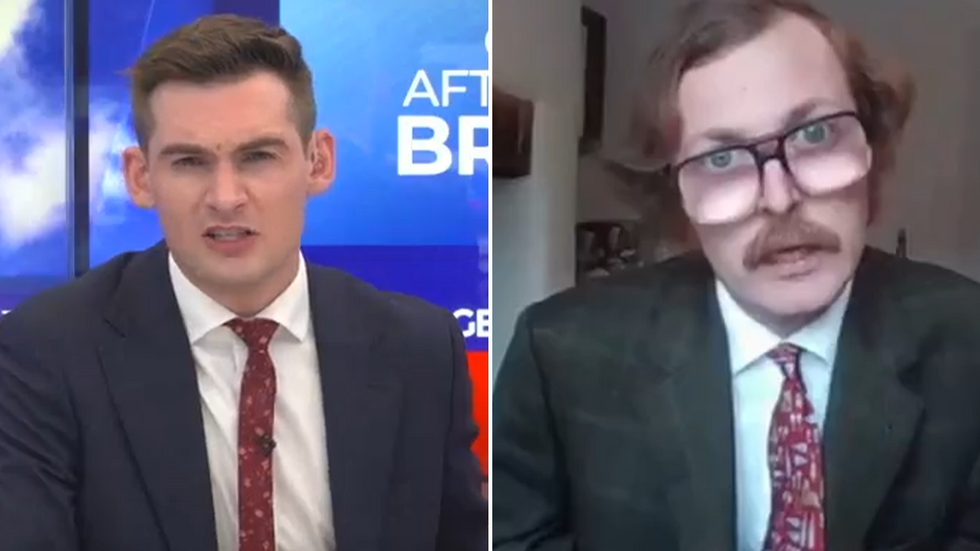
Tom was left shocked by the suggestion
|GB NEWS
“Certainly, redistributive taxation is a gross injustice. In the absence of abolishing the welfare state or significantly cutting back benefits, given the poor are net recipients of welfare and the rich are net contributors to the welfare state, we need to reverse redistribution.
“We need to tax the poor and that way, we reduce the amount of injustice in society. The poor are getting too much as it is and the rich are having too much taken away.”
LATEST DEVELOPMENTS
- First Labour MP urges Keir Starmer to withdraw from ECHR
- Keir Starmer in hypocrisy row as Richard Tice tears into PM over Lucy Connolly case
- 'Scrap the OBR!' Rachel Reeves called to take action as economy trapped in 'doom loop'
A shocked Tom interjected to say: “Charles, are you honestly saying taxing the poor more will reduce the amount of injustice in this country?”
He responded: “Absolutely. Wealth creators are entitled to their wealth and today, they are being totally ripped off.
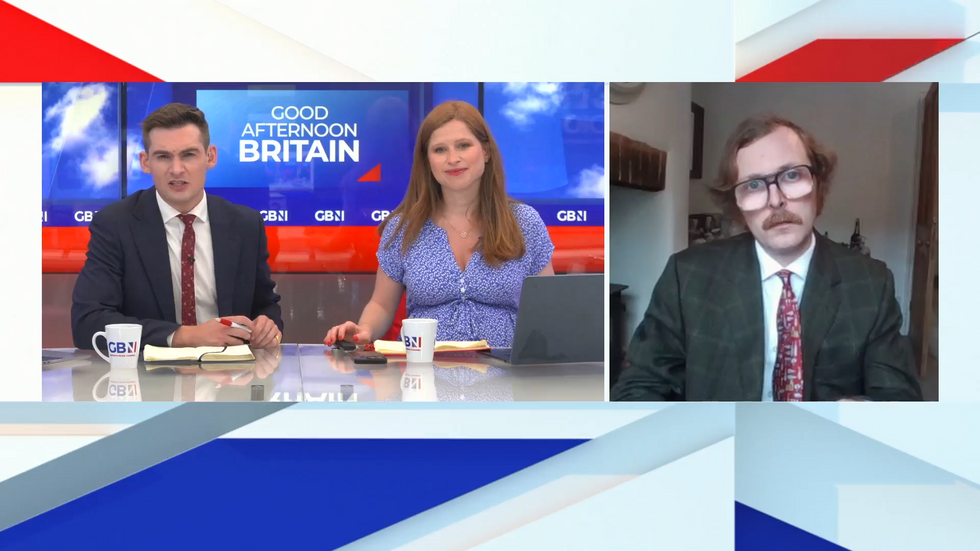
Mr Amos joined Tom Harwood and Emily Carver on GB News
|GB NEWS
“If you look at the top one per cent of earners, they pay 28 per cent of income tax. If you take the top 10 per cent of earners, you’ll find they contribute to the Treasury sixty per cent of income tax.
“The bottom ten per cent only pay 0.4 per cent of income tax. The bottom 10 per cent of households receive, on top of their net income, 40 per cent of it in net transfers in addition to it.”
Emily waded in to say Mr Amos was unlikely to win an election on the back of his radical proposal but acknowledged “there is a certain logic”.
She added: “It is true that those who aren’t earning very much money may take more from public services.”
Asked how the proposal would go down with Britons, he admitted “absolutely terribly”.
“People don’t want to pay more tax but if the Chancellor has to fill a Budget deficit of £137bn or at least the £50bn black hole that has recently come to fruition, she has to raise significant sums and the only way she can do that is taxing working people.
“If she raised VAT on all the zero rated goods and services in the economy, she could raise £100bn.”
Treasury officials are examining comprehensive changes to property taxation as Chancellor Rachel Reeves seeks additional revenue to address a £40 billion gap in Government finances. The proposals under consideration would fundamentally alter how residential properties are taxed in the UK.
 Rachel Reeves's tax changes have proven to be controversial | PA
Rachel Reeves's tax changes have proven to be controversial | PAAmong the most significant changes being explored is the introduction of capital gains tax on primary residences valued above £1.5 million when sold. This would end the current exemption that protects homeowners from paying the levy on their main residence.
The reforms also encompass replacing existing stamp duty with a new proportional property tax and overhauling the council tax system.
These measures would represent the most substantial changes to property taxation in decades, with officials calculating how such proportional taxes might function across the UK.
The proposed capital gains levy would require sellers of properties worth £1.5 million or more to calculate the profit made between purchase and sale prices.
Those earning higher-rate income would face a 24 per cent charge on these gains, whilst basic-rate taxpayers would pay 18 per cent.
Analysis suggests approximately 120,000 property owners who are higher-rate taxpayers could face average tax bills of £199,973 under these proposals.
The threshold remains under discussion within Government circles.
More From GB News





